by Nick Hahn
Colonial Downs has now put its latest “like it or lose it” ultimatum in print, again via press release, this time on a Saturday, and served it to the Virginia Racing Commission.
The press release follows a letter to the Commission written by Jeffrey Jacobs, chairman and CEO of Jacobs Entertainment, which owns Colonial Downs. The latest media blitz also includes an open letter to Virginia horsemen by the newly formed Old Dominion Thoroughbred Horsemen’s Association (ODTHA), published in Sunday’s Richmond Times-Dispatch.
The ODTHA, a new group which claims that it “represents the interests of all thoroughbred owners and trainers racing in the Commonwealth of Virginia,” was incorporated on September 24, according to Virginia Corporation Commission records. The organization’s registered agent is James Weinberg, who also, according to his law firm’s website, represents Colonial Downs in areas including “negotiation of innovative, long-term contracts with Virginia thoroughbred and standardbred horsemen.”
In its letter, the ODTHA announced it has signed a 10-year contract with Colonial Downs. “In Virginia, there is only one racetrack,” the letter says. “So if you don’t have a good relationship with the management of that track, you’re not going to get many things accomplished.”
That’s not exactly the sort of revolutionary rhetoric that moved the original colonial spirit; Thomas Paine and Patrick Henry, it’s not.
Yet what is revolutionary about the Colonial-ODTHA proposal is what it’s hoping to accomplish.
For one thing, the approval of the proposed arrangement would require the Commission to shunt aside the Virginia Horsemen’s Benevolent and Protective Association (VHBPA). The VHPBA has represented Virginia horsemen since the late 1990s.
Under the federal law that allows simulcasting, wagering on out-of-state races is only permissible if the host — that is, Colonial Downs — has a “written agreement with the horsemen’s group” representing the majority of owners and trainers. Unable to obtain such an agreement on the terms it seeks, Colonial now hopes simply to convince the Commission to let it name the group with which it negotiates.
Another radical change would be the track’s goal of holding what amounts to an all ship-in meet.
One of the biggest economic sticking points in negotiations has been the issue of stabling. Racetracks typically provide stabling free of charge, but Colonial maintains that that is economically infeasible, and that it would prefer to close the stabling area altogether, except for those barns necessary to house horses in today.
“Our race day schedule and associated horsemen’s contract provide a stable expense structure for Colonial Downs,” Jacobs wrote in his letter to the Commission. Indeed; the expense of their stables is zero, as Colonial would have it.
The VHBPA has offered as much as $300,000 to defray stabling expenses but contends — logically — that an all ship-in meet won’t work.
The weekend press release and letter come after what appears to be the last “to and fro” between Colonial Downs and the VHBPA. The VHBPA replied to a Colonial proposal in a letter September 25th with plenty of “acceptables” on the proposal, saying that it did “not think the differences between us are great,” and offering to go to mediation to bridge the gap. Colonial’s response was to eliminate mediation as an option.
Colonial’s counter went to the Virginia Racing Commission instead via a three-page ultimatum on September 29th seeking ODTHA recognition and approval of its contract with that organization.
It must have that approval by the Commission’s October 15 meeting, the company said, or it will cease operations by November 1.
“Unfortunately, if you do not support our vision and associated contract with the ODTHA, then I am out of ideas and I will be surrendering my license to you,” wrote Jacobs.
“Colonial has proposed three days of national caliber, high end racing with an additional 17 days of summer racing for Virginia horsemen,” the press release states. “We aspire to be the Saratoga of the South.”
And in his letter, Jacobs reiterates that his proposal is for “three days of high-end racing spread out over the summer.”
Yet three big days of racing scattered throughout the summer without stabling isn’t Saratoga, even in Virginia. It’s not even Finger Lakes.
What’s more, how big those days would be needs consideration. The Jacobs proposal includes the revitalization of the “Grand Slam of Grass,” the track’s old promotion that offered a $5 million bonus to a horse that could sweep the Colonial Turf Cup, Virginia Derby, Arlington’s Secretariat Stakes, and the Breeders’ Cup Turf.
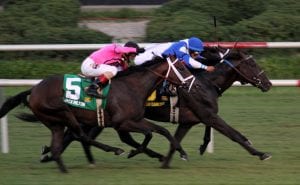
No horse ever accomplished that, and, more to the point, the racing landscape has changed dramatically since then.
Colonial’s signature race, the $500,000 Virginia Derby as it was last run, typically took place in mid-July — a spot on the calendar now occupied by the $1.25 million Belmont Derby. The Colonial Turf Cup would presumably have to be reclassified (it’s now open to older horses) and another yet-to-be named race would reconstitute the Jacobs Grand Slam of Grass.
Moreover, if the Grand Slam of Grass was such as great event, why did it go away? The old format involved keeping a three-year-old running at the top of his game from June to November and often spanned the entire country. It’s still really hard to believe that English Channel almost accomplished the far-fetched feat in its first year. Under the new format, English Channel would have had to ship to New Kent at least three times.
“We are disappointed that we are where we are, but we are where we are,” Jacobs wrote to the Commission. However, does Colonial know who they are?
Colonial was a quaint, rural track with a supernatural turf course that for nearly a decade, enabled it to own the three-year old turf division in racing with its high end stakes, the Virginia Derby and Colonial Turf Cup. Yet somehow it has now slipped away.
The charming venue provided a unique opportunity for moderate horses like Miss Oil, All That Glitters, Class Bopper and Action Andy to shine versus full fields. La Reine’s Terms, Class Yankee and Nuit De Chance prospered on the Colonial lawn while becoming fan favorites. Da Hoss and John’s Call slugged it out in a Colonial allowance that served as the former’s prep for the 1998 Breeders’ Cup Mile, which he won.
Ask any racing secretary what the first component is desired in forming races, and you’ll hear field size. Bettors agree. More horses make for better racing and better betting, and Colonial’s average field size reached the top five more than Alabama in college football.
“Over the last 17 years racing at Colonial Downs has often been inconsistent,” Jacobs wrote to the Commission.
In fact, though, Colonial’s meet was well defined as it is limited seasonally with weather that forces either a summer or fall meet. Since 2002, it has been in the summer from the end of school year to a few weeks prior to beginning of the next one. Many of Colonial’s successful turf horses found Saratoga’s starting gate later in the summer. It wasn’t the timing or scope of the meet that gave horsemen fits. It was constant tinkering of the schedule to night racing and shortening of the meet. Horsemen knew what Colonial was.
But this isn’t about racing.
In his letter to the Virginia Racing Commission, Jacob says that without the Commission’s approval, he will be “considering other options for my New Kent County real estate.” As was the case with the in-house horsemen groups, it seems unlikely that process isn’t well underway.
Colonial’s solution appears to be “my way or the highway.” Written edicts and surprise Saturday teleconferences put the Commission in a tough spot, and were it to accept Jacobs’ ultimatum, the Commission would surely end up in court with the VHBPA. Jacobs himself is rumored to make a rare appearance at the October 15th commission meeting.
“’If it ain’t broke, don’t fix it.’ Well, thoroughbred racing in Virginia is clearly broken and needs to be fixed,” reads the ODTHA open letter in the Richmond Times-Dispatch. The ODTHA certainly looks like the fix Colonial Downs has prepared.
Yet in this case, you have to wonder if what Virginia horsemen have known for decades, even centuries, applies today. Fixed is another name for gelded.
[author] [author_image timthumb=’on’]http://www.theracingbiz.com/wp-content/uploads/2013/12/nickhahn.jpg[/author_image] [author_info]Nick Hahn has been covering Virginia racing since before there was a racetrack. His “Off to the Races” radio show is a must-listen, and his “Nick’s Picks” tip sheet is a shortcut to wagering profits at Colonial Downs.[/author_info] [/author]



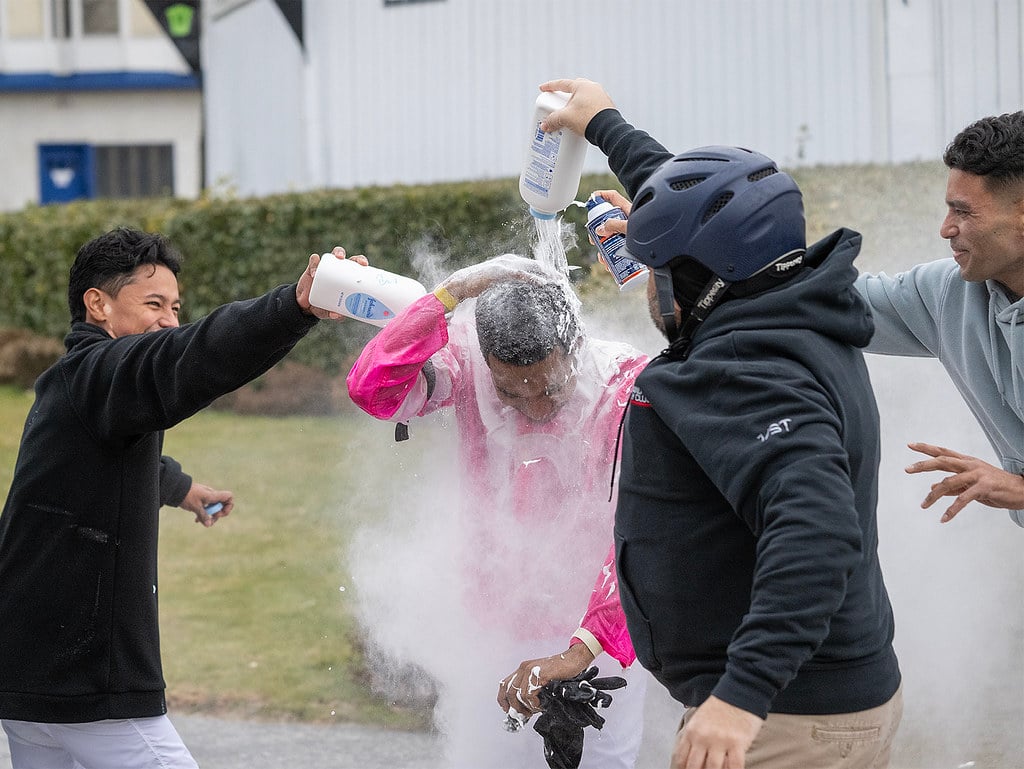
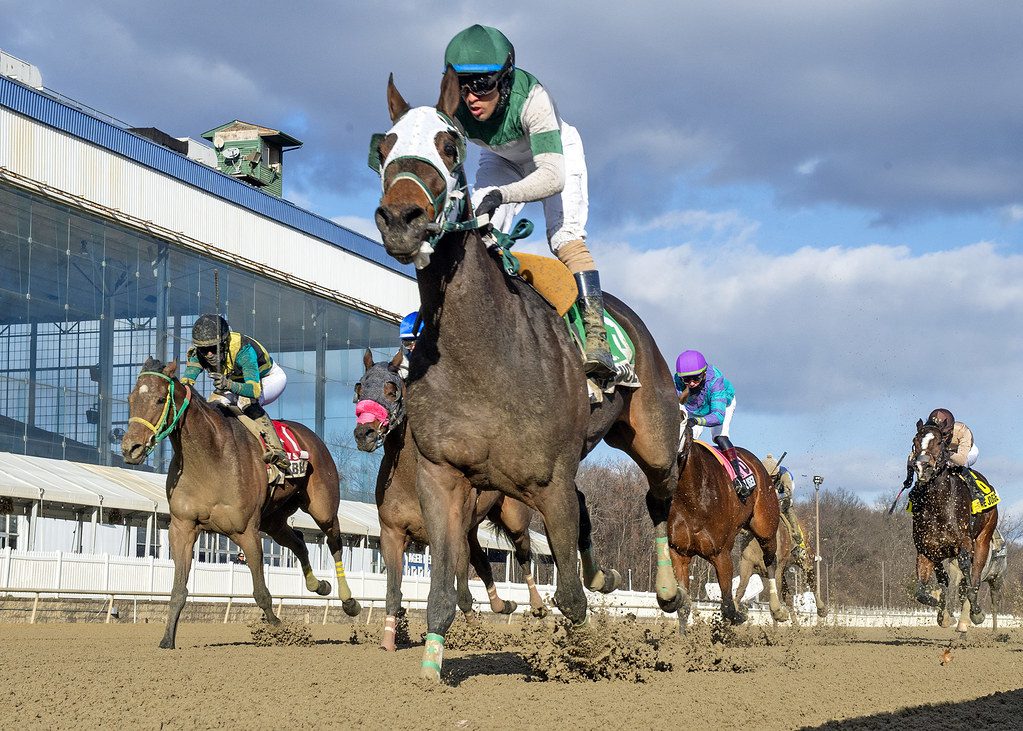
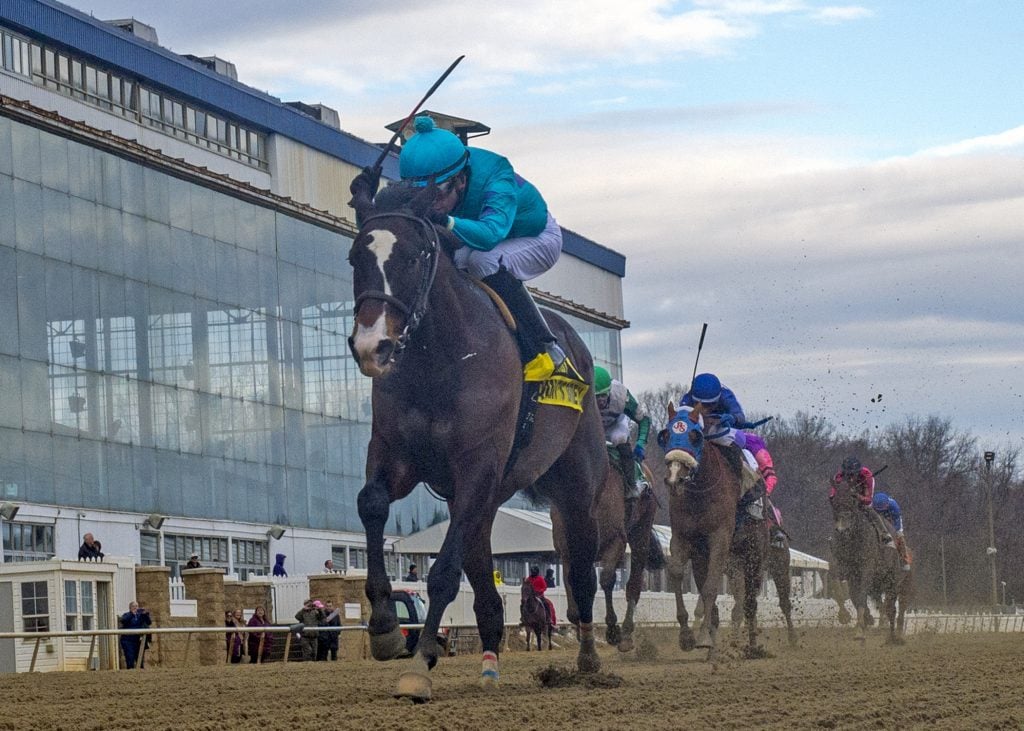
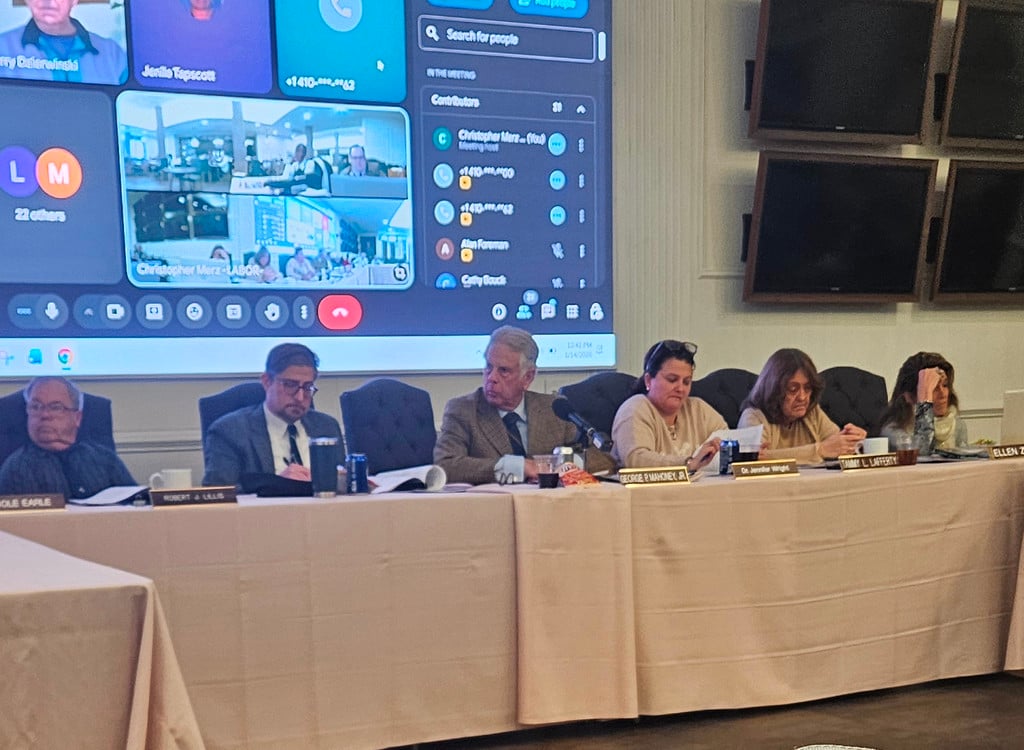
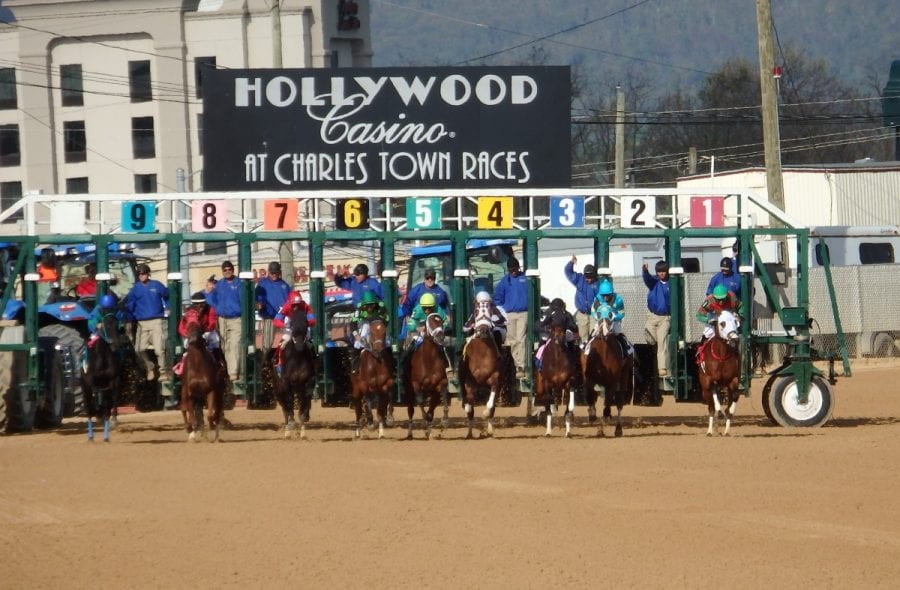
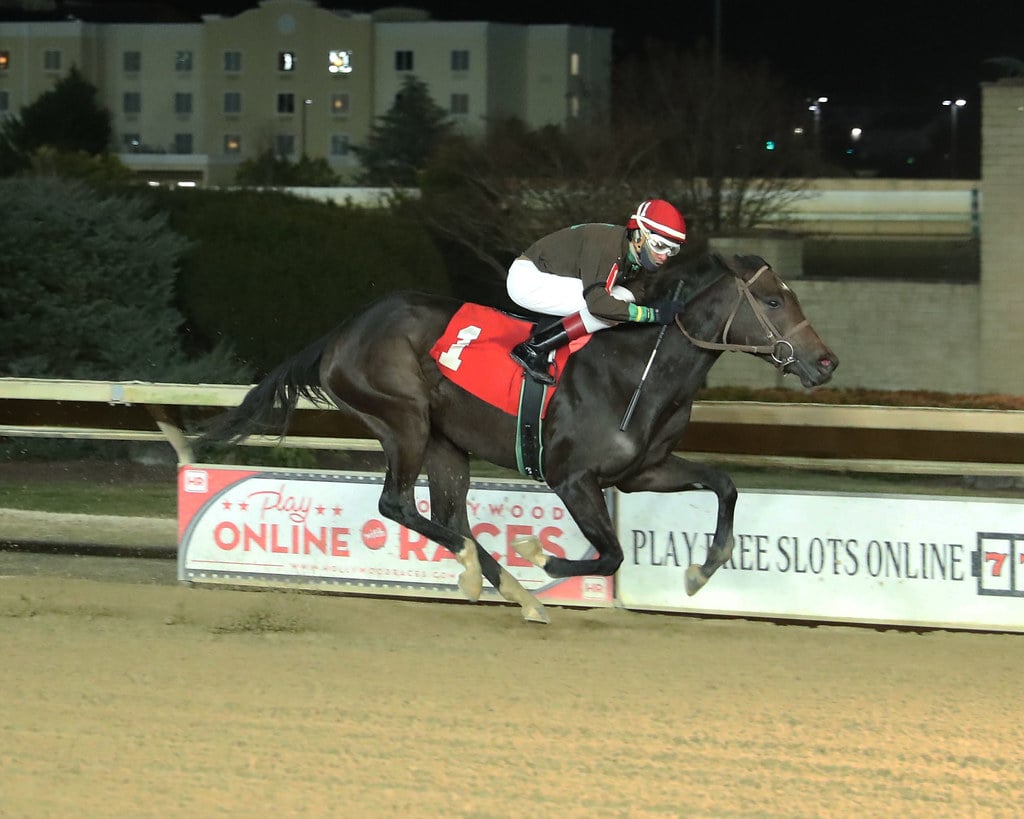
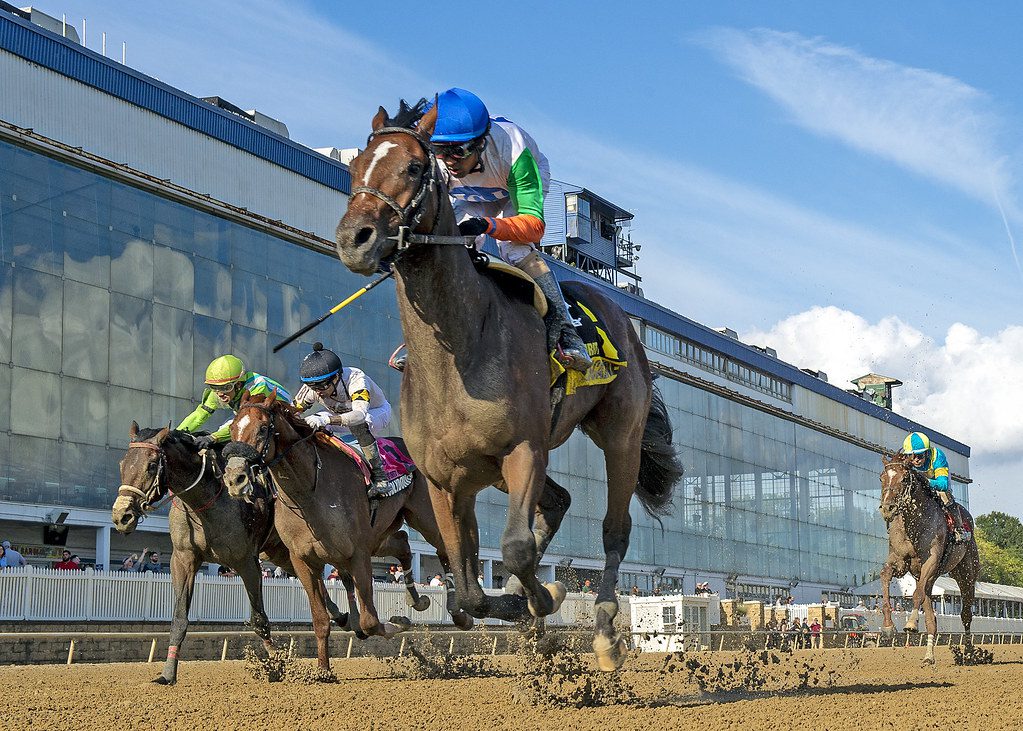
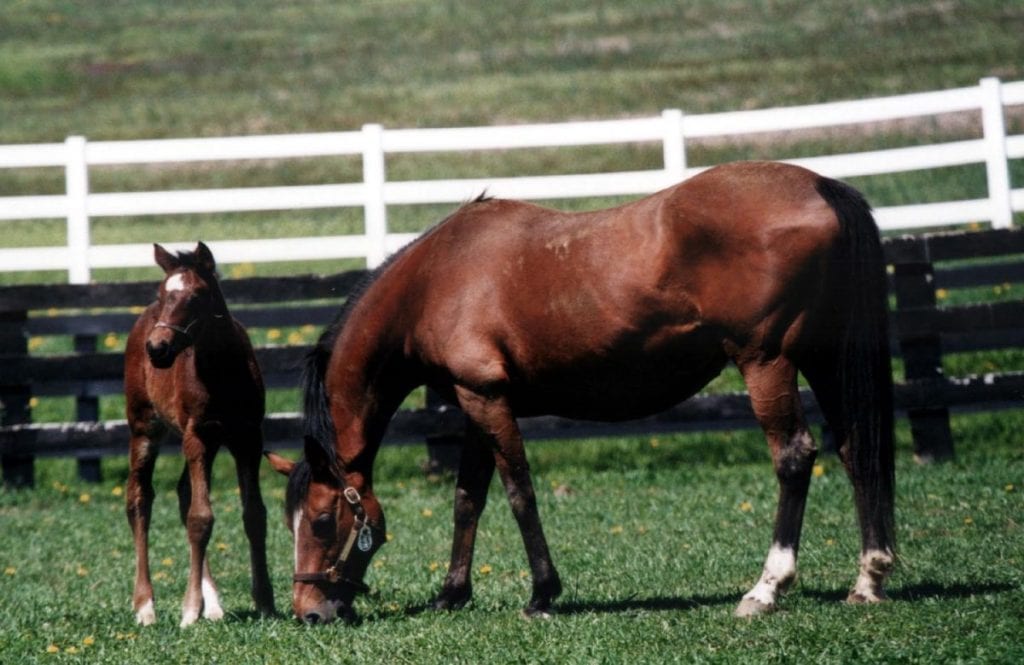
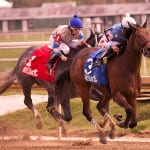

Belinda
07th Oct 2014Gelding? No this is Jacob’s holding the gun to the horse’s head with an itchy trigger finger.
A Disrespected Fan
07th Oct 2014Nick…Good article and perspective. Many thanks to the Racing Biz for staying on top of this story! However, you stated in your commentary that if the Virginia Racing Commission accepts the Jacob’s ultimatum, the VRC would surely end up in court with the VHBPA. My response to that would be, On what grounds? Isn’t the VRC the body that oversees horse racing in Virginia? The VHBPA would not have a leg to stand on if the VRC choses to embrace a new Horsemen’s association. There is no existing contract. From a legal perspective, the only thing the VHBPA could do is seek a temporary injunction preventing the Old Dominion Association from entering the agreement with Jacobs. I don’t see that happening unless the new association turns out to be bogus.
The Biz
08th Oct 2014Replying on Nick’s behalf — Fan, the grounds would be that the law requires a contract between the track and a group representing the majority of horsemen. There’s no real case to be made that ODTHA represents “the majority of horsemen,” since it didn’t exist until two weeks ago. Yes, the VRC regulates horse racing, but it doesn’t have the unfettered right to do whatever it wants, and it seems it would be a tough case to make that ODTHA represents the majority of horsemen and that the HBPA does not.
LindaVA
07th Oct 2014As a fan, at this point I am inclined to say let ’em shut it down. In the RTD today there was discussion of expanding the limited license meets at The Plains. Maybe it’s time to call Jacobs’ bluff.
Virginia Horsemen
08th Oct 2014Excellent recap and analysis.
Disrespected Fan, you don’t understand the law. The VHBPA is the horsemen, and has been for as long as Colonial has been operating. Track management finding a single Florida stooge (who has never run a horse at Colonial) to claim to represent a “majority” of Virginia horsemen is not what the Interstate Wagering Act defines as a state’s horsemen. Unless this sham group can produce a membership list that exceeds the legitimate horsemen’s group, the Racing Commission will not recognize any “contract” eliminating the Virginia racing industry.
Nick’s summary that Colonial’s position is “my way or the highway” is correct. Time for Jacobs and his cronies to get on the highway and head back to Colorado, Florida, and whatever far away place they came from.
A Disrespected Fan
08th Oct 2014No, apparently I do understand the law, enough to know that you don’t have a prayer. You had nine freaking months to resolve this issue and your best comeback is to call someone a stooge. You still don’t get it. You have NO CONTRACT! Without a contract, you are yesterday’s news.
db
08th Oct 2014“MONOPOLY OF SAD”
For most fans in this state
db
08th Oct 2014Well written review that will go unseen by Br-ass just like the fans that will be shut out of Breeders Cup wagering November 1…
Belinda
08th Oct 2014If any group does not have a horsemen majority the way I read it, a contract cannot be validly entered in to in the first place. Secondly does the VRC still contain a member that was once employed or a stock holder of Colonial or JEI?? Not saying my recollection is all that clear but that seems like a clear conflict of interest.
Nick Hahn
08th Oct 2014Fan, I’ll defer on making a pick on the legal outcome but the racing world has been moving forward and past Virginia while this impasse staggers. It would be good if Colonial Downs would take the part of investor in Virginia racing’s future, that includes breeding, instead of simply being the holder of the license.
NC
09th Oct 2014Nick, the breeders need to take a good look in the mirror and admit that the Virginia foal crops are declining, horse ownership is declining, and fewer and fewer new blood is being added….horse and human. This can’t all be laid at Colonial’s feet. There isn’t a single stallion of note in Virginia worth breeding to.
Here’s what I’d suggest….first, put together a syndicate and buy or lease a HIGH quality stallion…along the lines of the Smarty Jones benefit to PA racing. Then, offer to link the amount of race days, and level of racing to a corresponding increase in the Virginia horse population. That gives time to build up a higher quality racehorse, and get new owners invested in Virginia racing. The breeders and trainers need to put more skin in the game.
AND, if a fraction of this vitriol had been directed at the politicians who are holding up slots, we might have been there by now.
And for crying out loud, quit demonizing the staff at Colonial, do you think any of them want to lose their jobs too ?
A Disrespected Fan
10th Oct 2014Just saw today where the new Horsemen group has a very informative web site up and running. Now we are getting somewhere!! Just go to http://www.odtha.com to view what the new horsemen group is all about. For those who still wish to downplay the alternative , it appears this group is well organized and funded. Barry Irwin with Team Valor is no slouch and I see where horseman Mark Deane is VP of the new group. The writing is on the wall…change is coming my friends!
The Biz
10th Oct 2014One thing about Barry Irwin – he never met a situation he didn’t think would be improved by his commenting on it.
Glenn Petty
11th Oct 2014Amen, especially on the latter point re: the political hurdles that have stifled VA racing since it’s inception. That said, I’m not sure VA has the breeders nor the money to purchase/lease a viable stallion, and an ever declining broodmare population to support same. There have been a number attempts to organize similar efforts over the years during better economic times and with industry trends pointing in the right (or at least a neutral) direction. The breeders have a role in this situation, but their numbers and influence have declined for a variety of reasons not necessarily related to CLN.
— GP
P.S. per a later comment, I’ve been watching/participating in this dance for 30 years now, and I don’t think there has ever been a member of the VRC that was on the CLN payroll. The current VRC is a highly credible bunch with great experience in the government and the industry. The Commonwealth would be hard pressed to come up with a better appointed group.
Mike Hummel
10th Oct 2014Dear The Biz:
A statement that an all ship-in meet won’t work without some sort of reasoning behind your statement makes me question your premise. Further, calling someone a “stooge” or simply dismissing a person they way you dismiss Barry Irwin only further erodes your credibility. Going on, the only idea you put forth and support with fact is your dislike for a $5 Million bonus offered to a horse that could sweep 4 races. Bonuses are supposed to be hard to win – would you rather have no bonus?
The Biz
10th Oct 2014Mike Hummel:
1) Neither I – this is Frank Vespe, posting as The Racing Biz – no any of our correspondents called anyone a stooge. That was another commenter expressing his/her opinion.
2) We’ve addressed the ship-in meet problem elsewhere and (I believe) at length. Two-thirds of runners at Colonial in recent years have been stabled on the grounds, and many of those are horses sent from elsewhere specifically for the chance to run as Va.-breds and/or as cheaper horses on the grass. Colonial is a long and inconvenient ship from almost anywhere else on the East Coast. If there is no stabling at CNL, Where will the horses come from? How will the meet work? If one proposes such a change, wouldn’t it be incumbent on that person to explain how they see it working?
3) You — like everyone else, including Barry Irwin — are entitled to your opinion on Barry Irwin and everyone else. So am I.
4) We have covered every angle of this debate exhaustively and in far more detail than any other media outlet. This piece is clearly labeled as “opinion.” I assume what you’re driving at here is that you disagree with the opinions expressed — that, indeed, is your right, and we welcome debate.
Mike Hummel
10th Oct 2014I respect that you published and responded to my comment. I came here for further information on a topic of great interest to me – what I see as the increasing number of racetracks that will close. I neither agree nor disagree with your website’s stance.
You have captured one more reader.
The Biz
11th Oct 2014Mike – thanks for visiting, reading, and commenting. We appreciate it.
Unfortunately, we see the same thing you do — increasing challenges to the economic viability of our sport. I think everyone probably agrees that business as usual in Virginia is a tough proposition; the question is what to do about it. In an interview you can find on the site, DG Van Clief, who is on the Racing Commission, discusses creating a blue-ribbon task force to outline a future for Va. racing, and that seems like a needed effort that could point to a sustainable future. The sort of infighting we’re seeing generally doesn’t lead in that direction; nor does one side unilaterally imposing its view on the other.
Nick
10th Oct 2014Turning in the license on November 1st is the Colonial’s idea. They set this deadline. As for Virginia breeders, while not necessarily under the (VA) tag, this has been one of their best year’s in decades at least for the higher profile stakes that Colonial wants to offer.